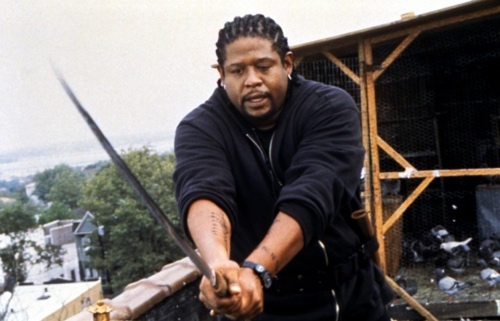
 I’ll gladly admit that I was a pretentious sixth-grader who regularly rented and fully enjoyed the films of Jim Jarmusch.
I’ll gladly admit that I was a pretentious sixth-grader who regularly rented and fully enjoyed the films of Jim Jarmusch.
While much of his work over the past decade hasn’t held my attention for very long, flicks like Down by Law, Mystery Train and Night on Earth — which I actually had a poster of in my childhood room — kept me suitably enthralled, but it was his double shot of Dead Man and especially Ghost Dog: The Way of the Samurai where I felt he reached his apex as a filmmaker and, consequently, my zenith as a teenaged film snob.
Taking the cinematic concept of the samurai warrior’s code and placing it in the crime-filled streets of a nameless industrial city, Jarmusch directs a superbly cast Forest Whitaker as the titular Ghost Dog, a modern-day Mifune who is a silent hit man for Louie (John Tormey), the comically stereotyped gangster. (As a matter of fact, all the gangsters here are comically stereotyped.)
When Dog takes out a philandering goomba, a hit is placed on our hero. Using his samurai skills — with a gun instead of a sword, natch — he takes out these made men one by one and still has enough time to visit his best friend, a French ice cream man (Isaach De Bankolé) who doesn’t share the same language, but always seems to get what Dog is saying.
Like Dead Man, Ghost Dog is a bizarre blend of action and comedy. Back then, it was a strange genre for Jarmusch to take on, but in his broken way, he deftly pulls it off, mostly due to a calm Whitaker as the cold-as-steel modern samurai, one of the coolest characters to ever slash the screen, against mucked-up mafiosos led by Henry Silva, both men showcasing an ancient world on the verge of disappearing forever.
I should probably give special mention to the soundtrack, orchestrated by the RZA. I highly recommend the Japanese import, featuring the beautiful, beat-heavy instrumentals, plus a few unreleased Wu-Tang cuts. At least the pretentious 2000 version of me thought so. —Louis Fowler

